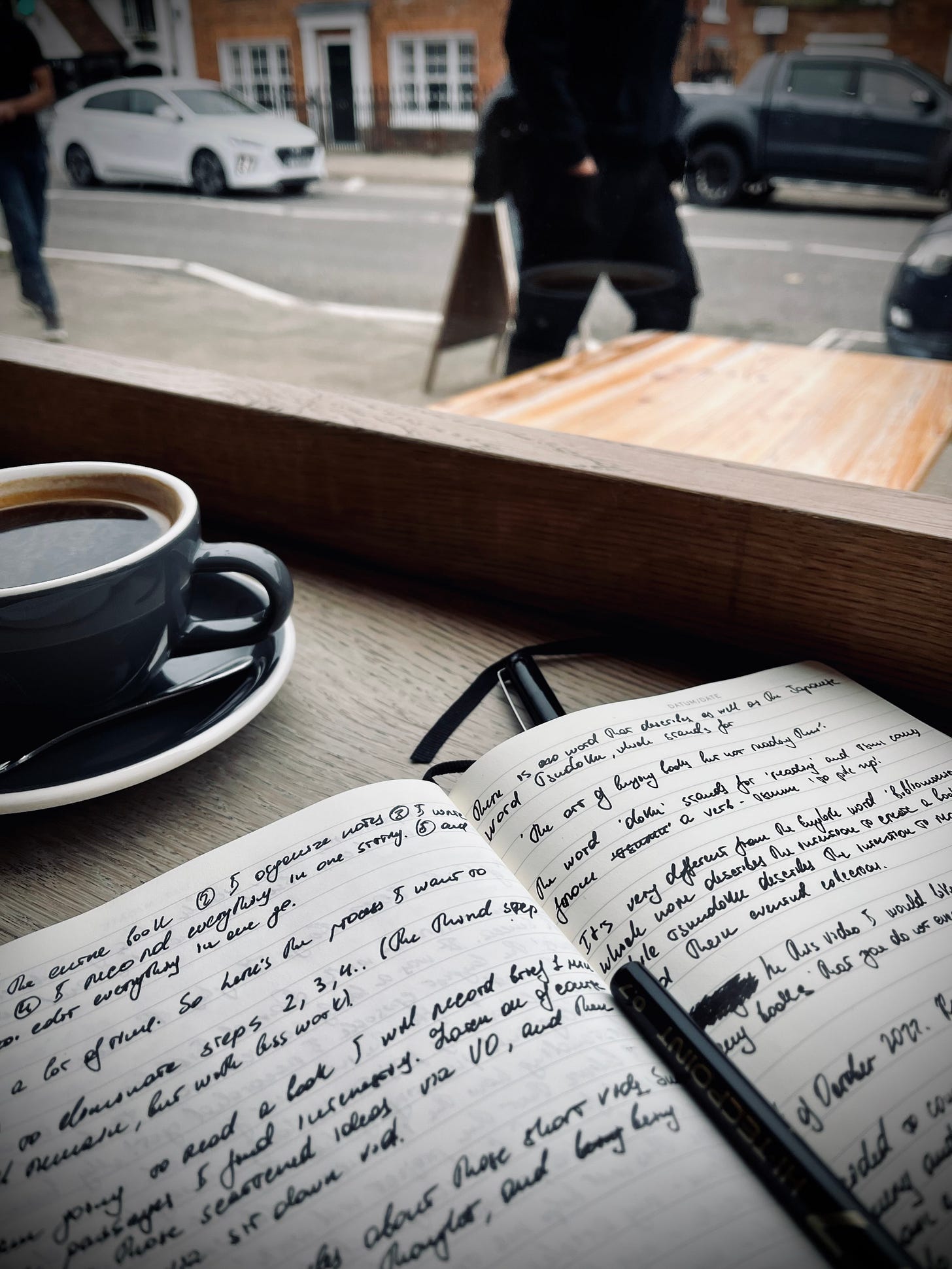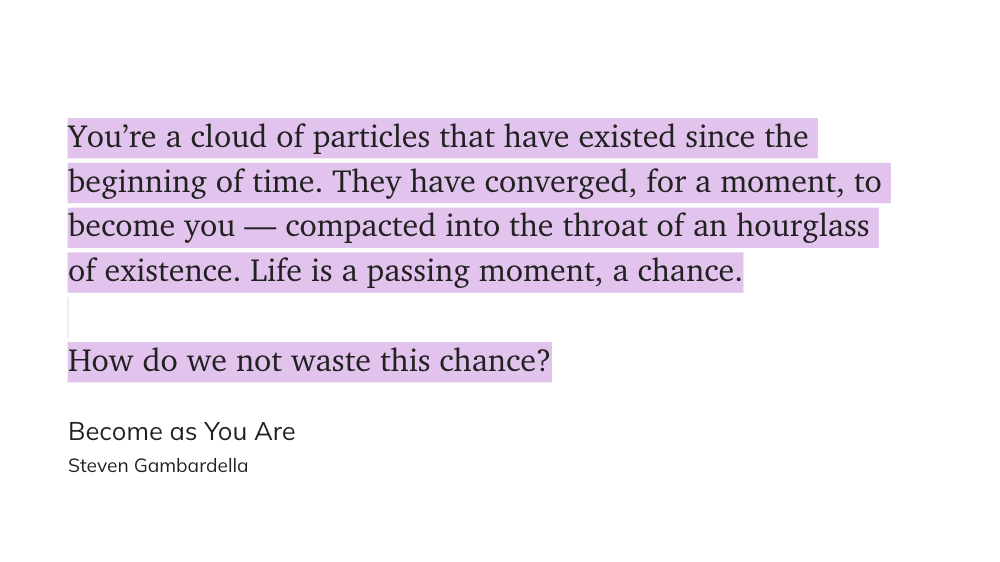🍂 Footnotes #8 | Why Dictators Like eBooks
In this edition: Solzhenitsyn, Christopher de Hamel, Ali Abdaal, Nikos Kazantzakis, Steven Gambardella, Armand D'Angour and others
💭 Word of the week: Paleographer - the general term for those who study ancient manuscripts.
“Own only what you can always carry with you: know languages, know countries, know people. Let your memory be your travel bag.”
― Aleksandr Solzhenitsyn
Hello friends,
In December 2023, two writers were banned from selling their books in Russia. The historian Boris Akunin and writer Dmitry Bykov received phone calls from, as they thought, Ukrainian officials. In that phone call, with what turned out to be pro-Kremlin prankers, both Akunin and Bykov said that they condemned Russian actions in Ukraine and declared their support for Kyiv’s fight for independence.
Within a day, their books were pulled from the shelves of bookshops across the country. Their publishers cancelled their contracts. But this is barely surprising at all. After all, Russia and censorship are often synonymous words.
What caught my attention, however, was the situation with the eBook versions of their works. Lit-res - the largest eBook shop in Russia -said that they will remove Akunin’s and Bykov’s works from their online shops, but will keep those books on the devices of users who already bought them. For now.
In other words, Lit-res says that they could remove a book from a device, even if you already own it, but choose not to do it. Yet.
It’s worth pausing to think what this implies. Imagine a physical book you’ve bought at Barnes & Noble or Waterstones disappearing from your shelf at the whim of censors. This is what the invention of eBooks made possible. Dictatorships dreamt of possessing technologies like this for centuries.
Previously, censors had the difficult task of finding every single copy of a book they considered to be ‘dangerous’ and then destroying it. They knew it was impossible. There was always one book that survived. Today with eBooks, that Russian store I mentioned to you before, could remove the book from your device without giving you a warning. You won’t even have time to save it. You might not even be aware of it.
But removing a book altogether is not the worst part. There’s something I fear even more than that. What if certain ‘inconvenient’ passages would disappear from an eBook you bought without you even suspecting that happened? Live-editing of already published and owned books is what I’m afraid of.
Okay, what should we do then? Should we abandon eBooks altogether? Should I throw my Kindle into the bin right now? Should we regress technological progress?
To be honest, I don’t think it’s possible. The best defence against tyranny, I believe, is the awareness that you’re only one or two steps away from falling into it. In the case of eBooks, we must be aware that large corporations have total control of the digital content you own.
Another defence against ‘knowledge regulation’ remains our old and loyal friends - physical books. Nobody can edit them without us being aware of this happening, nobody can take them away from our shelves without us shouting at top of our lungs that the robbery took place.
The final defence against modern censorship is the support of independent publishing houses and bookshops. The first step that dictators take when they come to power consists of centralising their power in one source. They want all the power to be in a single place so they can use it. They cannot control multiple decentralised independent actors, that’s their worst nightmare. This is something you already know, but once again we should be aware of this.
After hearing about this situation with Bykov and Akunin, I contacted my friend, who owns Akunin’s books on his eBook device and lives in Russia. He told me that he can still access those books, but wouldn’t be surprised if he wakes up tomorrow, refreshes his library, and sees those books deleted without his permission.
Welcome to a Brave New Book World.
As always - Confide tibimet.
🍂 Footnotes

Reading books is not just a pleasure: it helps our minds to heal
Binge watching Life of Riza’s cinematic videos
- called Become As You Are, which feels almost a crime that we can read it for free.
Amazing
on the greatest Roman poet
I am currently…
📖 Currently reading: Meetings with Remarkable Manuscripts by Christopher de Hamel
🎧 Current audiobook: Feel-Good Productivity by Ali Abdaal
📚 Book(s) Bought this Week: Freedom and Death by Nikos Kazantzakis
🖋️ Quote of the week
Do you want to keep a journal?
I’ve been journaling for the past 15 years of my life. By saying this I mean that for the past decade and a half, I’ve been sitting down, consistently, every day, and writing my thoughts and ideas into my notebook.
If you would like to begin your journaling journey, but don’t know where to start, how to stay consistent, or which type of journaling suits you, consider subscribing to my Patreon page.
I’ve made several ‘Guided journaling’ videos, where we sit down and journal together, I give journaling tips based on science, and I share some very personal pieces of advice based on my own journey.








I live in Russia. And I agree with these thoughts. But there is another side to it. At least for the moment, I can find electronic copies of books in English that, in our situation now, are simply not being translated and published. There are great difficulties in this search too, but this is different from the situation in the Soviet Union and the difficulties of samizdat. Although I still admire people who wrote 300-400 pages of an otherwise inaccessible book by hand in a few nights. I hope it will not come to that.
Vashik,
Between your own article on ebook censorship and the footnotes you have graciously included, there is a lot here to meditate about, re-read, and digest. A thousand Thank You’s.